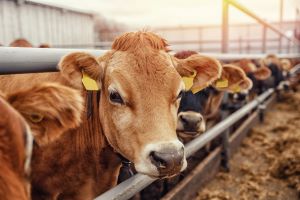Landowners who keep livestock on their land should be aware that they are under a duty to keep such animals safe and securely confined to protect the public. Cows, sheep, horses and pigs are commonly housed in fields, and it is not uncommon for them to escape from their enclosures.
As the countryside is full of public footpaths, pathways and bridleways, escaping animals inevitably come into contact with walkers, dog handlers, cars, and other animals. This creates a serious risk of damage to property, but - more seriously, may also lead to personal injuries. This could lead to civil personal injury claims and/or criminal sanctions.
For the purposes of this article, only commonly domesticated animals will be covered.
What is the Law?
- Occupiers Liability Act 1984: If your land has a designated footpath/pathway/bridleway, then users have a legitimate right to use. The landowner is then placed under to safeguard the safety of such users.
- Animals Act 1971: This places an obligation on owners/keepers of animals or those in possession, to ensure their animals are properly and adequately controlled for the protection of humans and other animals. (Other legislation deals with dangerous animals).
- The Health and Safety at Work Act 1974: Sec 3 says employers are under a statutory duty of care towards other people who are not their employees but may be affected by their actions and failures – namely members of the public.
A recent case highlights these dangers. In the summer of 2021, several members of the public were attacked by cows on a landowner’s land while using public footpaths. On the first incident, the member of the public sustained a fractured shoulder and broken ribs. The Health and Safety Executive (HSE) investigated the matter and served the landowner with a formal notice to implement control measures to prevent a recurrence.
However, a few weeks later, another member of the public - similarly using the footpath, was attacked by cows; causing concussion, dislocated shoulder, broken ribs and broken vertebrae. Following an investigation, the HSE charged the landowner under Sec 3(2) of the Health and Safety at Work Act 1974 – failing to ensure that risks to the public were controlled. The landowner pleaded guilty in May 2023, fined £15,000, and ordered to pay costs of £8,000.
How to Remove or Minimise the Risks
- Landowners storing domesticated animals on their land should try to house them as far away as possible from footpaths, pathways and bridleways. This will minimise the risk of escaping animals coming into contact with the public.
- Landowners must make sure that animals are secured in their enclosures by adequate fencing, barriers and hedges. These must be regularly inspected and maintained. The aim is to discourage users from climbing over them into animal enclosures, and to prevent dogs walking through them.
- Landowners must educate and train their staff to deal with escaping animals, with emergency plans in place.
- Landowners should erect and prominently display warning signs to alert users about the presence of animals, and to keep their dogs under control at all times. Although warning signs cannot absolve liability, they can at least mitigate liability, or at best amount to a defence of ‘volenti’ – where the user consented to the risk.
- Dog handlers who use the land must keep their pets under control at all times.
Conclusion...
While animal attacks are rare, they do occur. HSE states that on average there or 4/5 fatalities every year. Between 2021-22, there were 11. With this in mind, it is important that landowners realise and take seriously their safety duties. Appropriate and suitable measures must be taken and regularly reviewed to ensure livestock does not come into contact with the public and other animals. Failure to may cause personal injuries leading to civil claims, criminal sanctions and financial consequences.
This article is intended as a brief guide for educational purposes only. If you have any concerns, you are advised to call the Quest Advice Line on 01455 852 028 - where a team of professionals can advise you, and meet all your health and safety needs.






